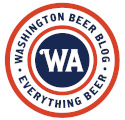The issue of breweries in unincorporated King County is still unsettled
The King County Council is currently considering an Ordinance related to wineries, breweries, and distilleries in unincorporated areas of the county. The proposed ordinance, which is not exactly new, establishes updated regulations for winery, brewery, and distillery (WBD) businesses. Our most recent coverage of this issue from December 2021 involved Good Brewing Company, which is one of the breweries impacted.
For the past couple of years at least, the ordinance has been considered, questioned, revised, challenged, and amended. The latest version is now before the King County Council.
Without getting too deep into the weeds, the proposed ordinance would impact about 40 businesses — breweries, wineries, and distilleries. These businesses are located outside city limits in places like the Sammamish Valley, the Snoqualmie Valley, areas around Woodinville, and areas around Enumclaw.
While the unincorporated areas impacted by the ordinance are primarily in District 3 and District 9, the eastern quandants of the county, the entire Council is tasked with addressing the issue.
WBD Proponents and Opponents
Proponents of WBDs – Some people appreciate these small businesses and value what they add to the community. Proponents, though not aligned into organized groups, say that the winery, brewery, and distillery (WBD) businesses fit into the rural nature of the incorporated parts of King County.
According to proponents of WBDs, things like increased traffic and increased impact on infrastructure are the result of residential development, not wineries, breweries, and distilleries. Cities are growing, which is the source of impact.
One example is the Ten Trails masterplan community in the city of Black Diamond. Currently, the city boasts a population of approximately 5,000. The new development will bring 6,000 new homes and over 15,000 new residents to the area. Black Diamond is largely surrounded by unincorporated areas, which Ten Trails will certainly impact.
While not opposed to reasonable regulations, proponents think it is unfair to shut down businesses that were opened legally and in compliance with existing rules and regulations.
Opponents of WBDs – The opponents want to see tighter regulations created and enforced. They are aligned into better-organized ranks, such as the Friends of Sammamish Valley and the advocacy group Futurewise. Those groups look to preserve and protect King County’s rural and agricultural areas, which is not an ignoble mission.
The opponents assert that the existing BWDs set a bad precedence and invite unchecked sprawl. They assert that these businesses are impacting and overworking existing infrastructure and creating unwanted traffic. They want to codify new regulations to restrict and prevent future businesses from opening. A major point of contention, they want King County to close existing WBD businesses in unincorporated areas.
Rural Areas, Agricultural Areas, Gray Areas
These unincorporated parts of King County, whether you call them rural or agricultural, have historically been gray areas. That is, the zoning laws are not entirely clear and it seems enforcement of whatever codes do exist has been inconsistent. I think people on both sides would agree.
The proposed ordinance seeks to remedy the situation. Despite all the revisions and amendments, neither the WBD opponents nor the WBD proponents are in favor of the ordinance as it exists. Both sides are urging the County Council to vote against the ordinance, which means more amendments and revisions.
On one hand, the ordinance creates new regulations for future businesses but does not necessarily, or specifically, shut down existing businesses, which bothers the WBD opponents.
On the other hand, the WBD proponents say that the regulations are too rigid. They are not opposed to zoning regulations but think the ordinance’s proposals are unrealistic and unfair, especially for existing businesses, which may have to close.
Even the council itself is frustrated. “It’s been frustrating because I came into this on my campaign agreeing that those WBDs not producing shouldn’t be allowed to set up shop on unincorporated land,” Councilperson Sarah Perry told The Seattle Times. “I never intended to come in and close existing businesses that were legally here. That wasn’t something I was even aware of as an intention until I took office.”
Councilperson Perry took office this year and is listed as the ordinance’s sponsor. It’s messy.
If you feel inclined to share an opinion with your elected officials, you can use this website to locate your district and contact your councilperson or any councilperson.

































